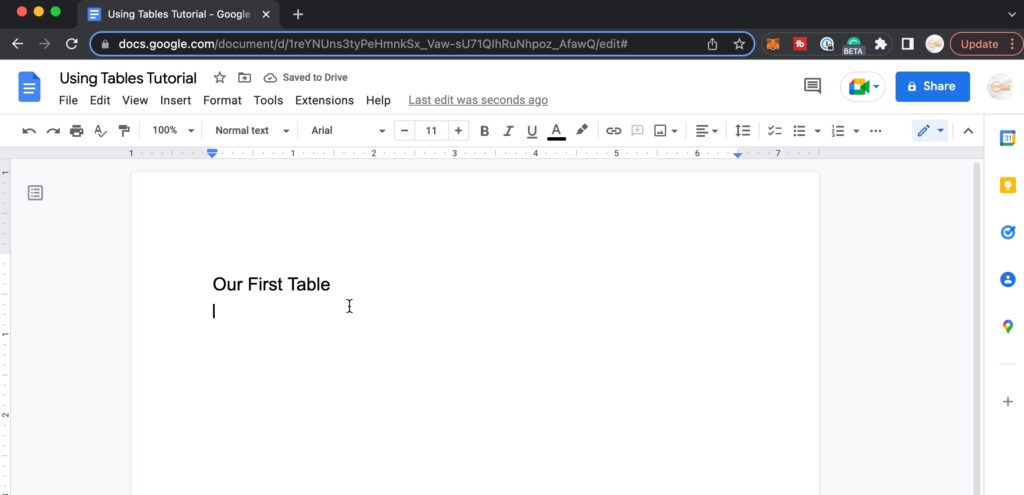

Tables are good for showing data within a document. Facts and figures are displayed in a grid to illustrate what you are writing about in your document. This tutorial will teach you how to create and edit a table in Google Docs.
Before creating your table, you will need to know what data you are going to show in your document. You may be writing about tee-shirts by type, color, and price, or how many oak trees there are in a neighborhood by street and how many. The key is that the table is relevant to what you’re writing about.
Before we get started with the article, if you are looking to learn more about apps like Notion, Todoist, Evernote, Google Docs, or just how to be more productive (like Keep Productive’s awesome Notion course), you should really check out SkillShare. Skillshare is an online learning platform with courses on pretty much anything you want to learn. To learn more about Skillshare and its vast library of courses and get 30% off, click the link below:
Let’s get started creating a table in Google Docs!
Enclosed below are the steps required to create a table in Google Docs:

A document in Google Docs
Open up the document you want to add a table to in Google Docs.
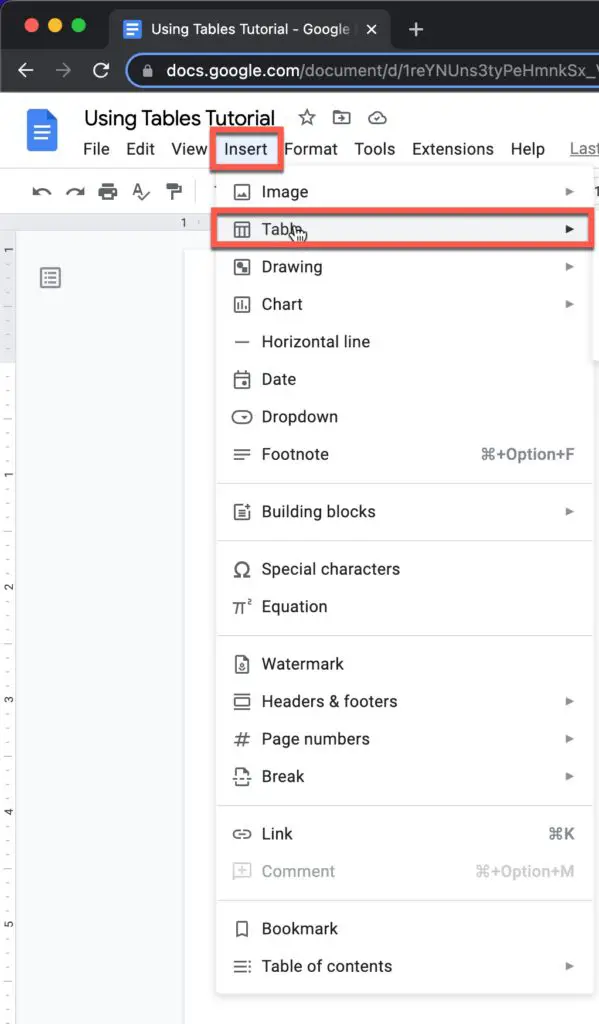
Go to Insert ->
Next, in the main menu, go to Insert -> Table.
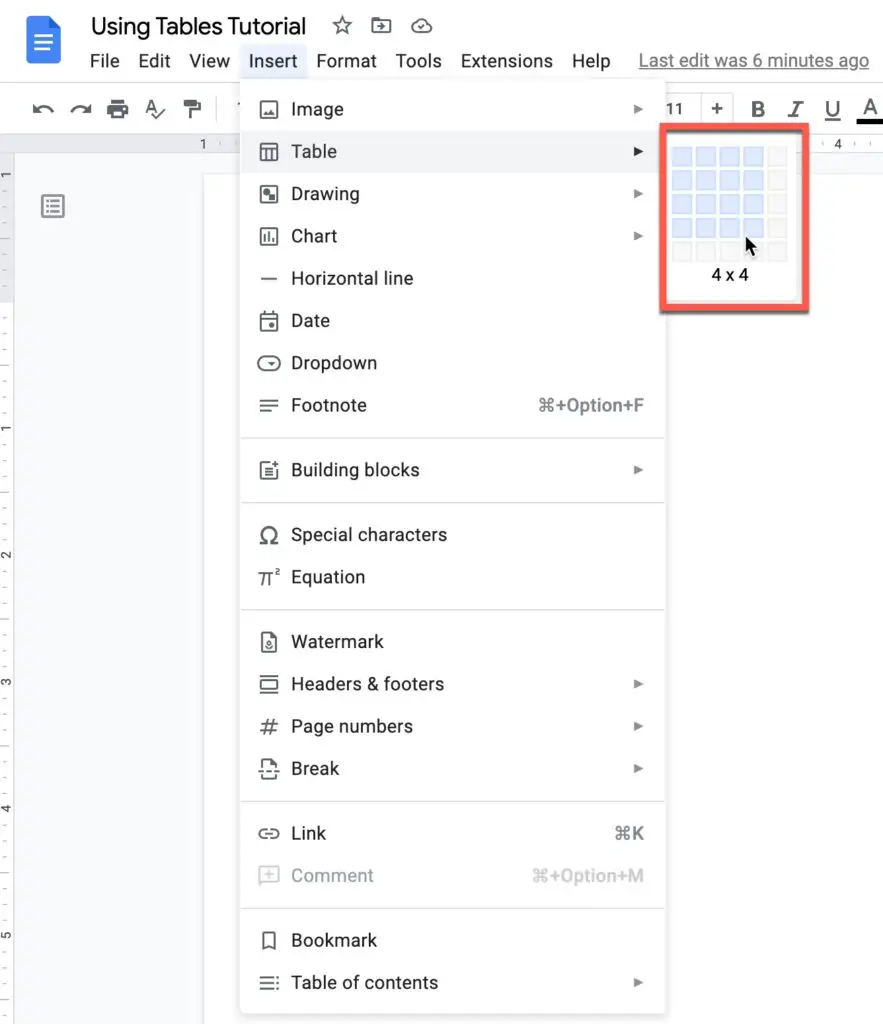
Use Table Grid in Google Docs to select how many rows and columns you want for your table
Use Table Grid in Google Docs to select how many rows and columns you want for your table. To do this, simply drag your mouse cursor across the grid and click the mouse button once you have it set to your requirements. For our example, we chose a 4×4 table (4 rows and 4 columns).
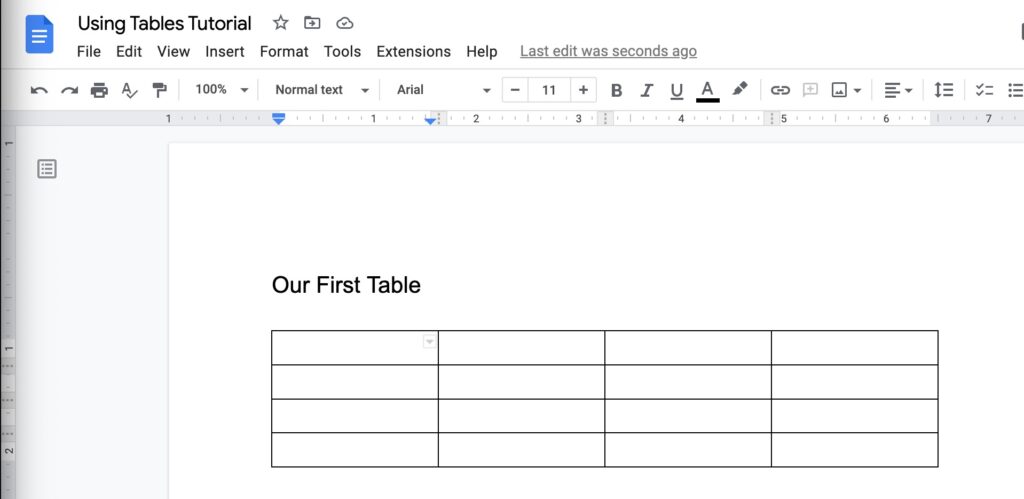
a 4×4 table in Google Docs
Your table should now appear in your Google Doc as shown in the screenshot above.
Ever wanted to open or edit a PDF in Google Docs? Check our Our Guide to PDFs in Google Docs.
The next step is to actually enter data into your table. To enter data into a table in Google Docs, do the following:

Editing a cell in a table in Google Docs
Click on the cell you want to edit as shown in the screenshot above.
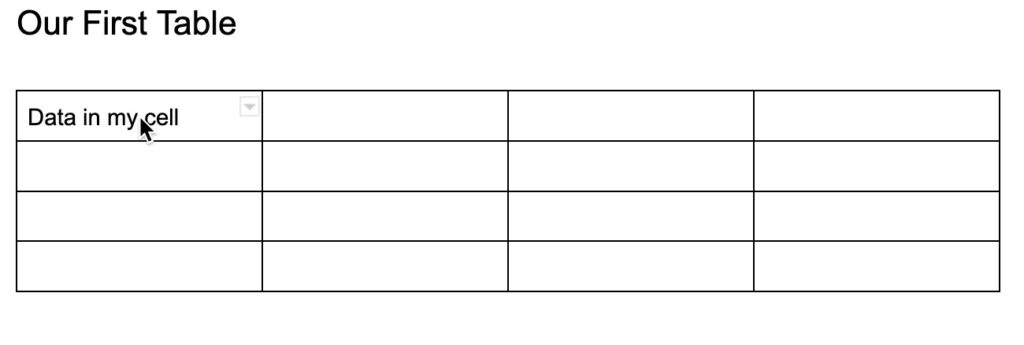
Add text to table cell in Google Docs
Type in some text and it will appear in the cell.

Click Tab button to move to next cell in table in Google Docs
To move to the next cell in the row, click the Tab button. To move to the cell underneath the current cell, click the down arrow button.
Tip: Clicking Tab at the last cell of the last column will add another row.

a populated table in Google Docs
Now that you have data in your table, you may want to edit it as you develop your document.
Did you know that you can write equations inside Google Docs? Check out our tutorial on how to use the Google Docs Equation Editor.
Once you have a table populated, you will likely want to format the text. In this instance, we are making the header row text-centered and bold.
Tip: You can get the same result by pressing Ctrl+B for Bold and Ctrl+Shift+E for Center align.

Hold Down Shift and click on each cell you want to format
Hold down the shift key and click on each cell you want to format. If you only want to format a single cell, just click on it without holding down the shift key.
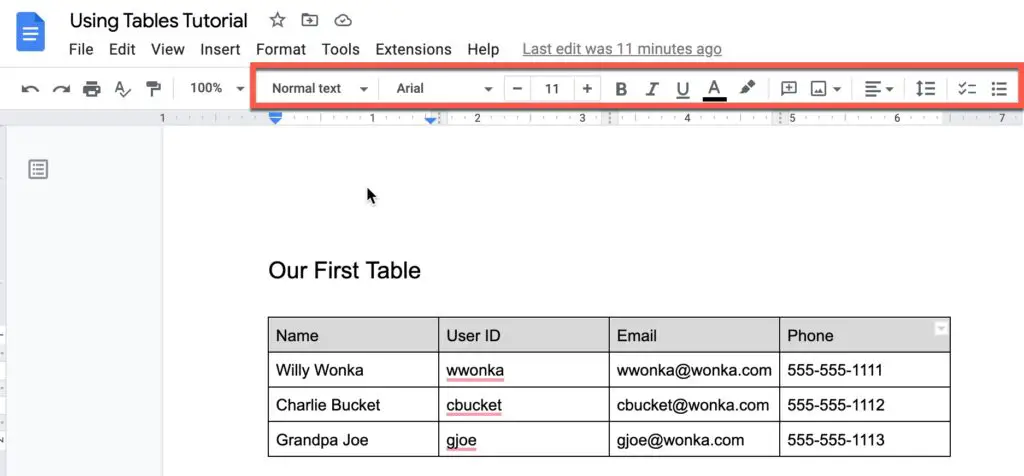
Click on the formatting options in the text format toolbar to apply formatting the text in Google Docs

Next, click on the formatting options you want to apply to your text in the formatting toolbar as shown in the screenshot above. Bolded and centered text in a table in Google Docs
For our example, we decided to bold and center the text so we selected those options from the formatting toolbar. The text in the cells you selected should now be formatted as shown in the screenshot above.
You can also apply colors to table cells in Google Docs. In this instance, we are making the header row blue and the first column green.
To apply color to table cells in Google Docs, do the following:

Selecting all the cells in a row in Google Docs
Click on the cells you want to change the color for. As we mentioned earlier, to select multiple cells, hold down the shift key and click on each cell you want to change the color for.
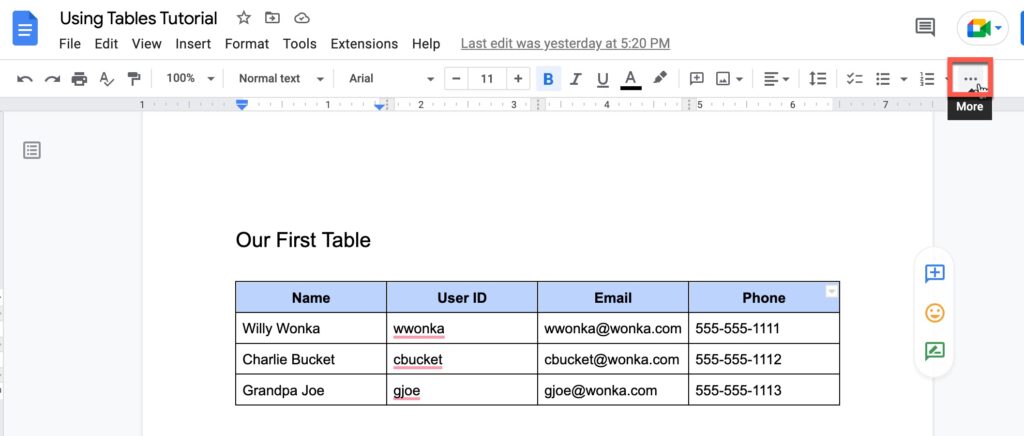
Click the ellipsis button to bring up more formatting options in Google Docs
Next, click on the ellipsis button (the three dots) as shown in the screenshot above.
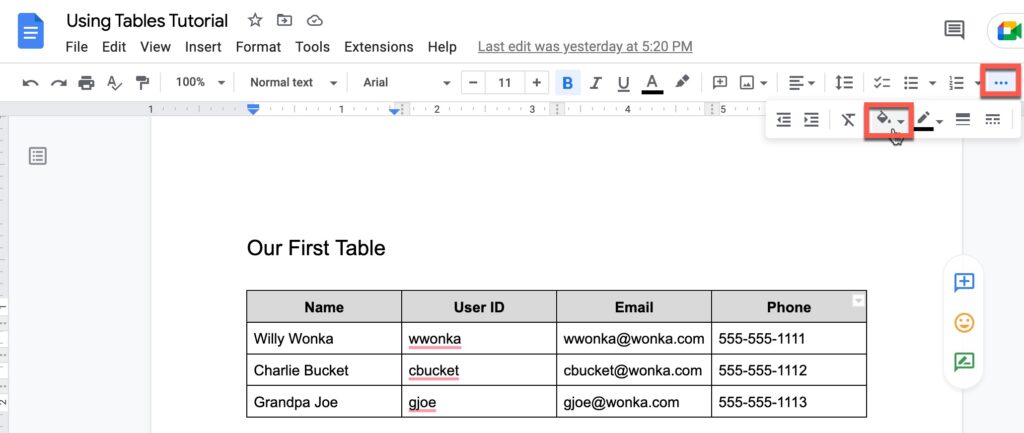
Background Color Button in Google Docs
Once you have clicked the ellipsis button, you should see a sub-menu as shown in the screenshot above. Click on the background color button (it is the button with a paint bucket on it).
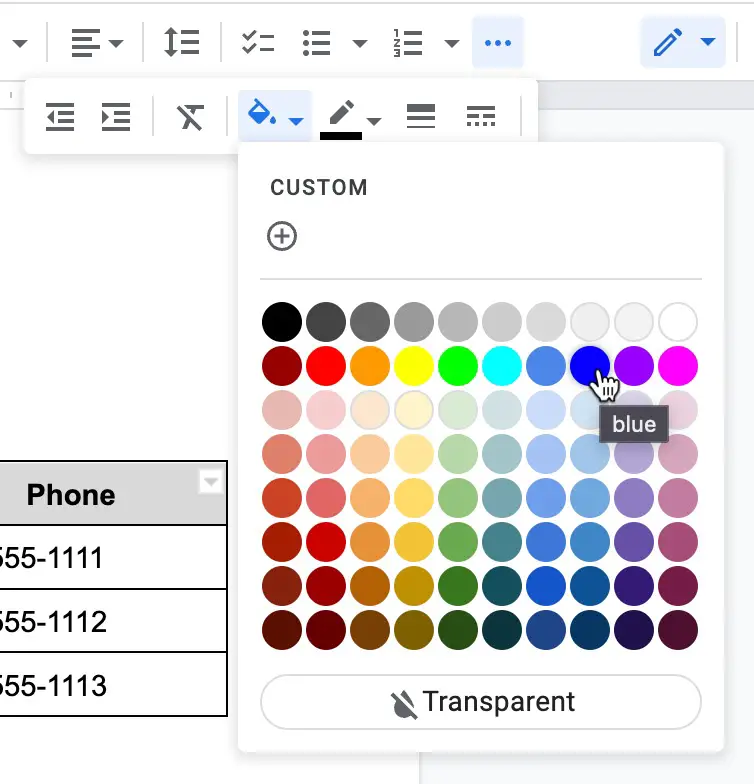
Pick Color from Color Picker in Google Docs
You should now see the color picker as shown above. Click on the color you want for your cell(s) background. For our example, I chose blue.
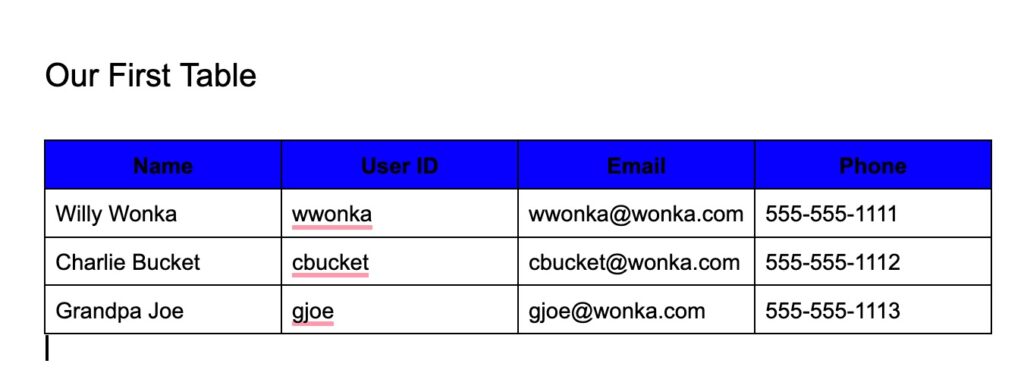
Blue cells in Google Docs table
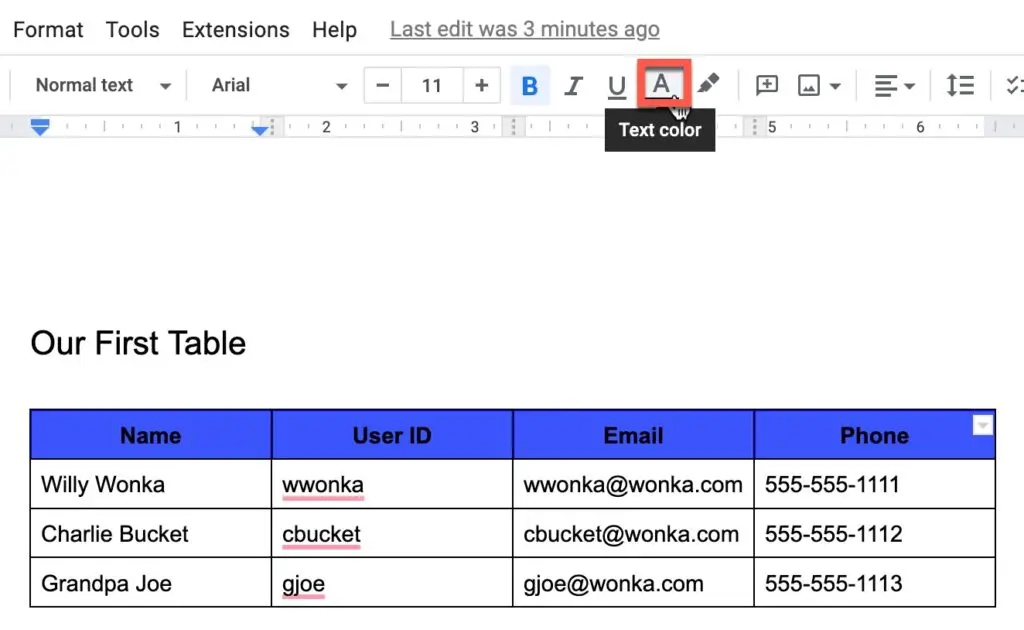
Your cells should now be the color you chose. If you notice the screenshot above, the blue is dark and it is hard to read the text so let’s change the text color to white to make it easier to read. The Text Color button in Google Docs
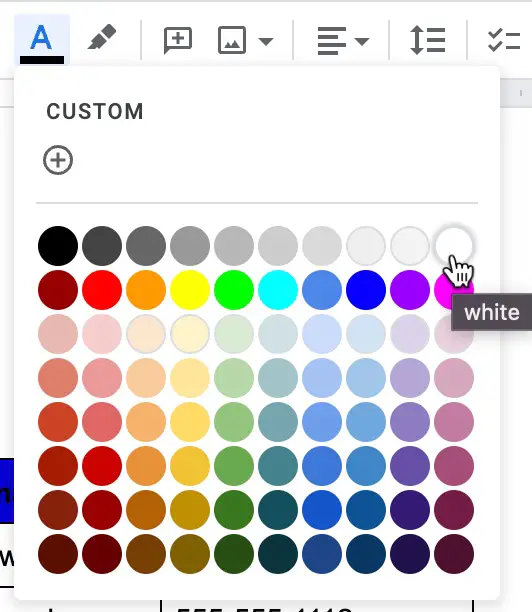
Select the cells again and click on the Text color button as shown in the screenshot above. Select white from color picker
Select white from the color options in the color picker as shown above.

White text in blue cells in Google Docs
Your cells should now have white text as shown in the screenshot above.

Select cells
Select the cells you want to change the border for.
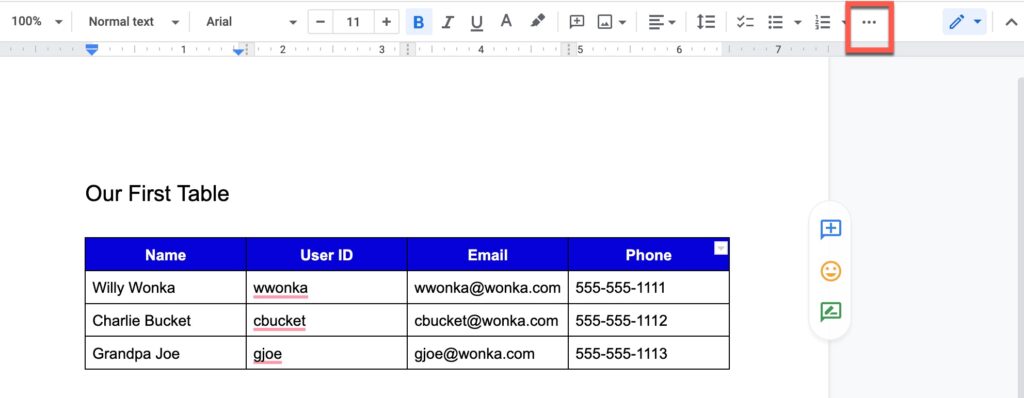
Click the Ellipsis button
Next, click on the ellipsis (…) button in the formatting toolbar as shown in the screenshot above.
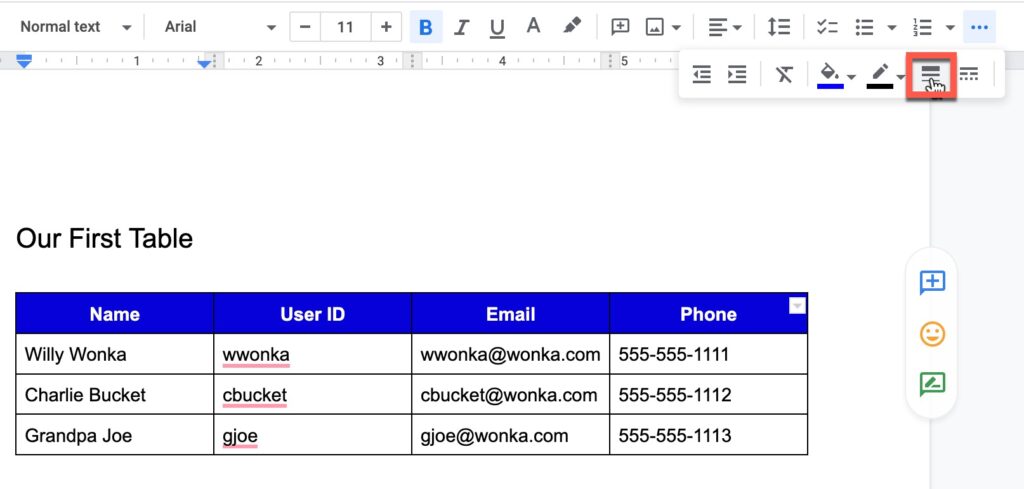
Border width button in Google Docs
Once you click the ellipsis button, you should see a submenu as shown in the screenshot above. Click on the Border Width button as shown above.
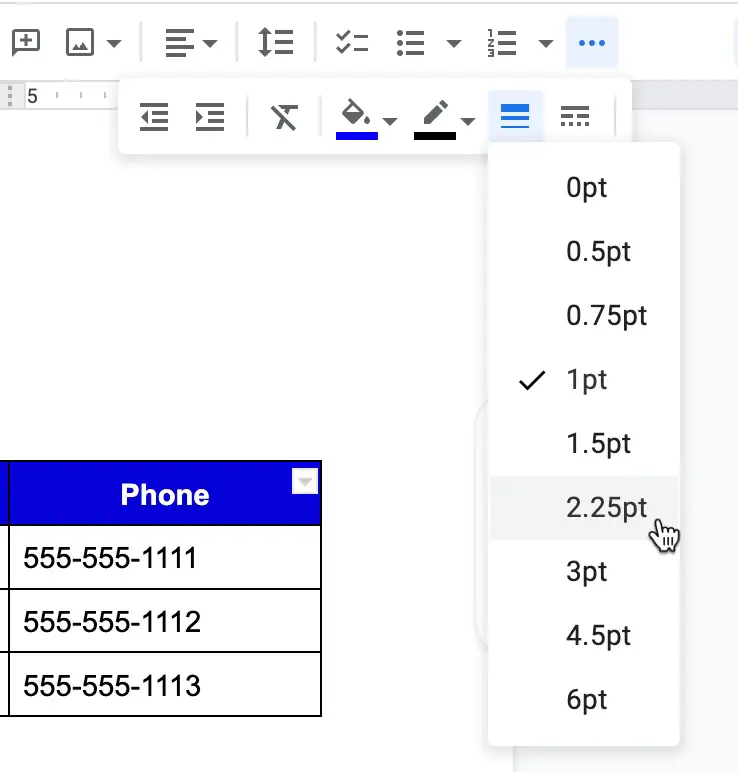
Select a weight for your border

Choose the weight (thickness) you want your border to be from the preset options as shown in the screenshot above. The higher the number, the thicker the border. Thicker border
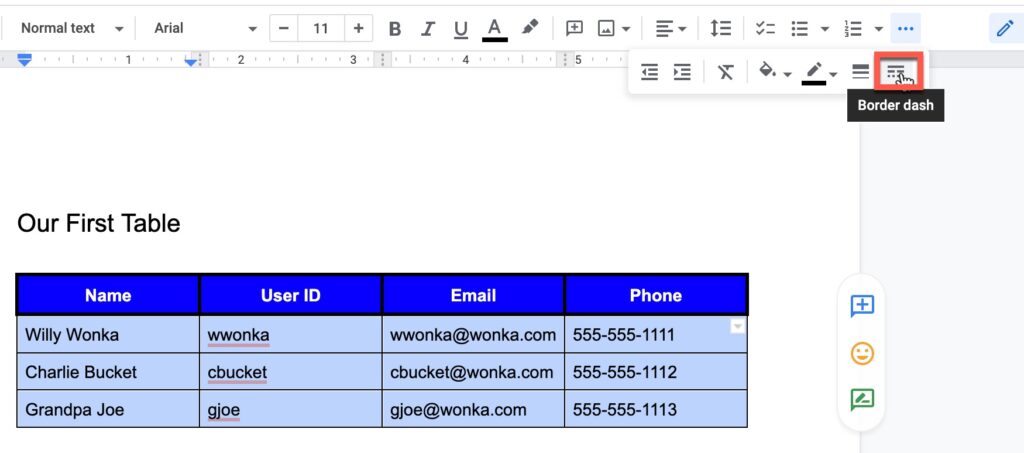
As you can see, the border is now thicker than before. Now, let’s change the border for the rest of the cells. Click the border dash button to change the border type in Google Docs
Select the cells you want and click on the ellipsis button as you did before. Click on the border dash button.
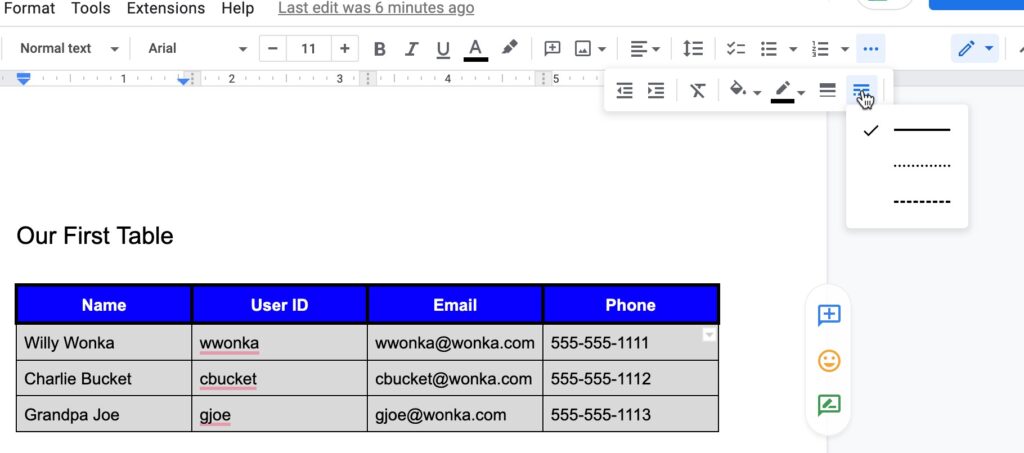
Border line options in Google Docs
You should now see three-line type options. Select the one you want by clicking on it. You should see a checkmark next to your selection.
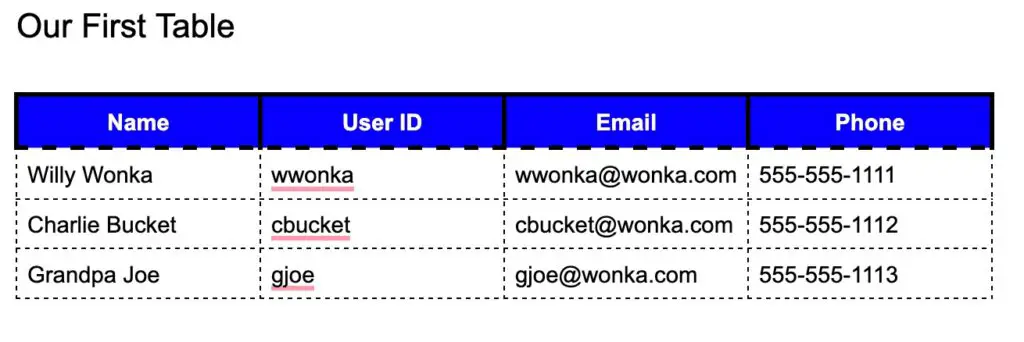
Dashed border in Google Docs
Your cells should now have the new border-line type, like the table shown in the screenshot above.
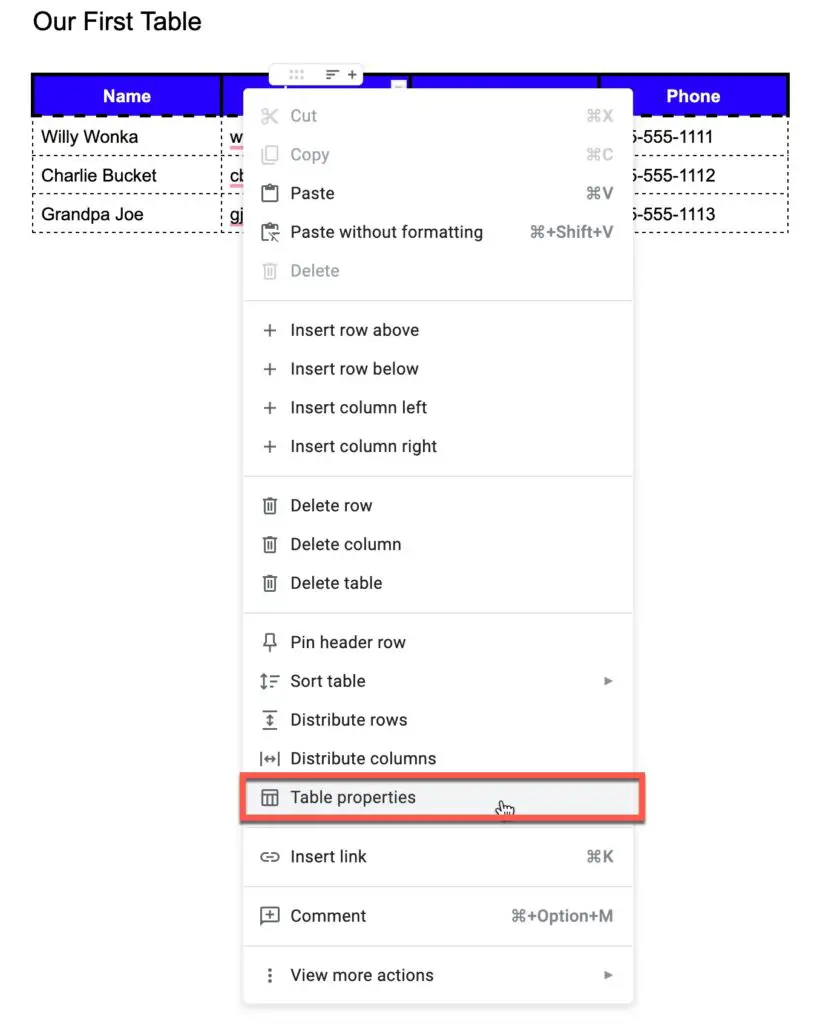
Table Properties in Google Docs
First, right-click anywhere in the table and select “Table Properties” from the available options as shown in the screenshot above.
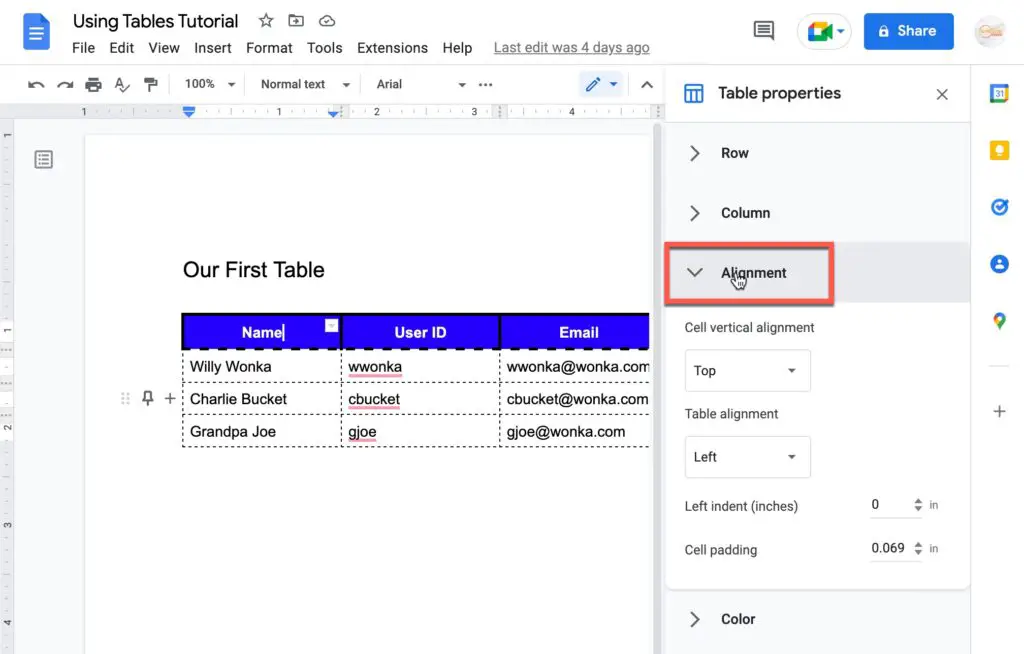
click on the alignment dropdown
You should see the Table properties menu on the right side of the Google Docs window as shown above. Click on the Alignment option to open up the alignment options.
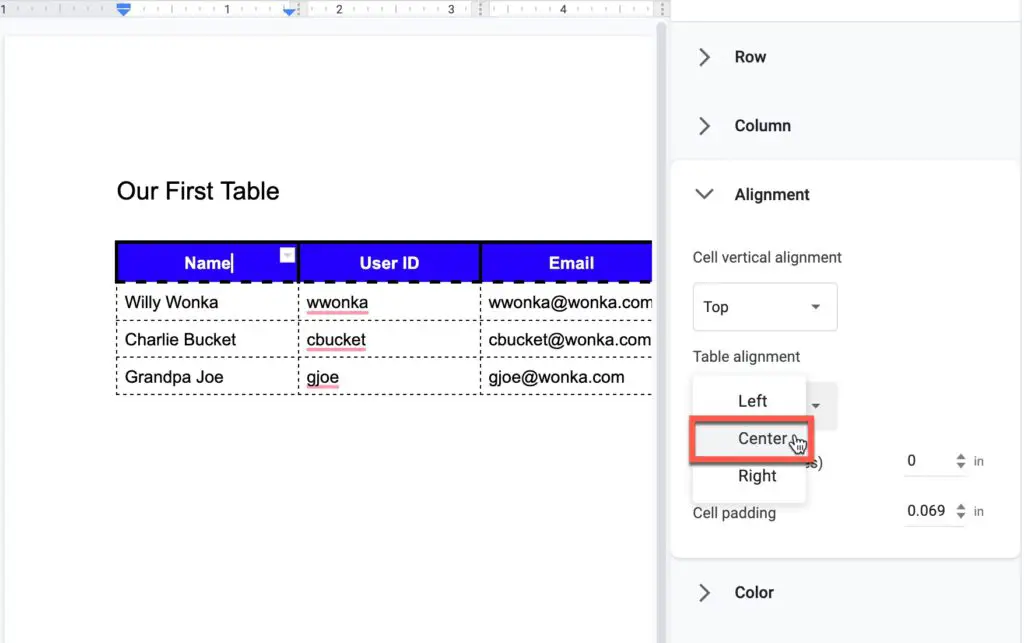
Select Center to center your table in the Google Docs page
Under Table alignment, click the dropdown menu and select Center from the available options.
Your table should now be centered on the page.
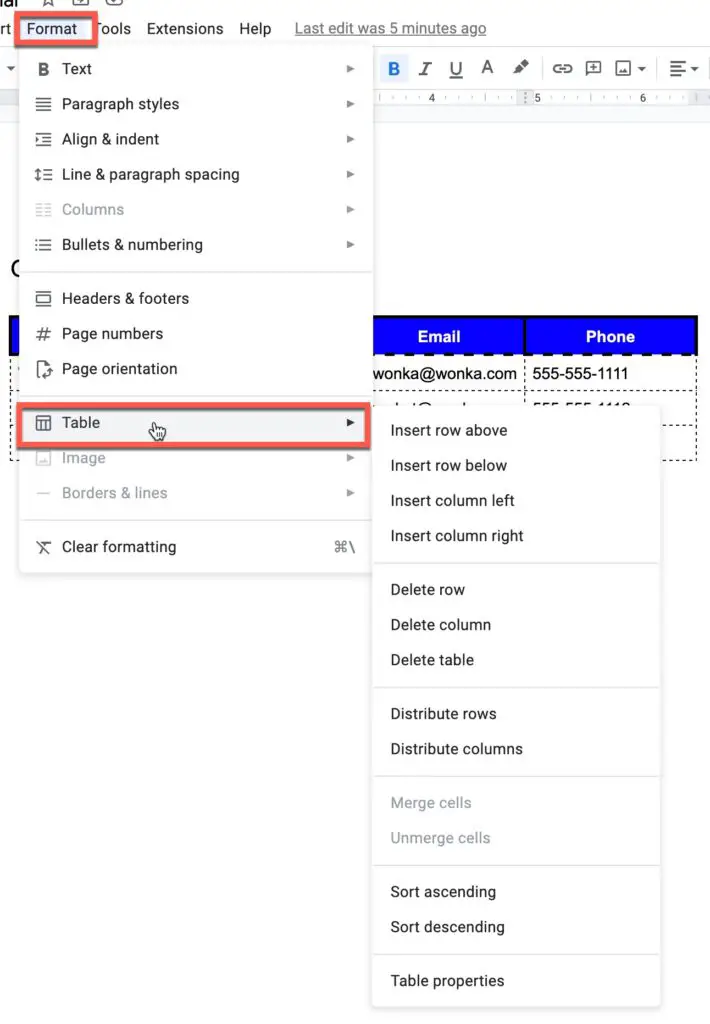
In general, there are two ways to make structural changes to a table in Google Docs.
There is no difference in outcome using either method. In the following examples, we are making structural edits using a Right-click.
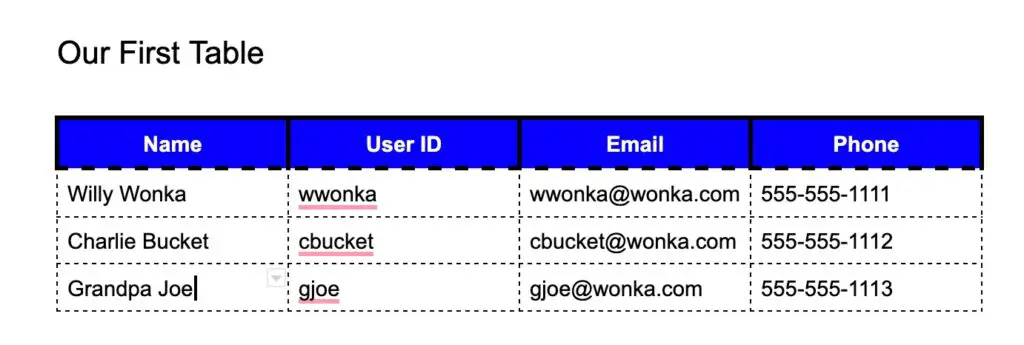
Place cursor where you want to add row or column in Google Docs
Click on the cell where you want to add another column.
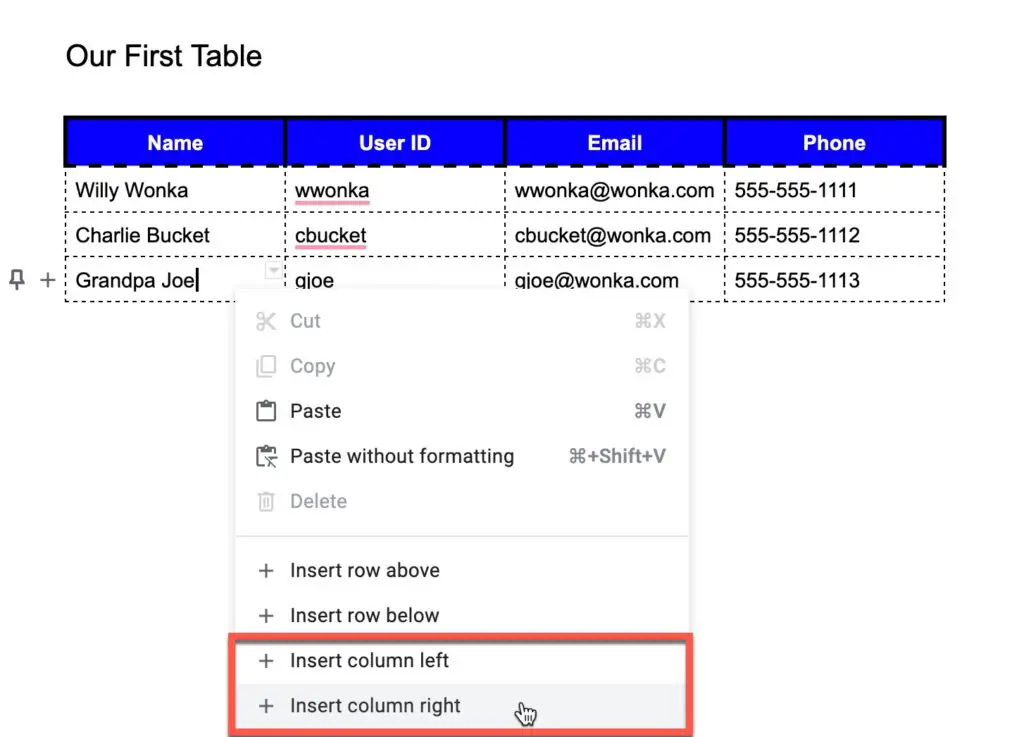
Right Click and Select Insert Column left or right
Next, right-click and select either Insert Column Left or Insert Column right depending on where you want the new column to be relative to the currently selected column.
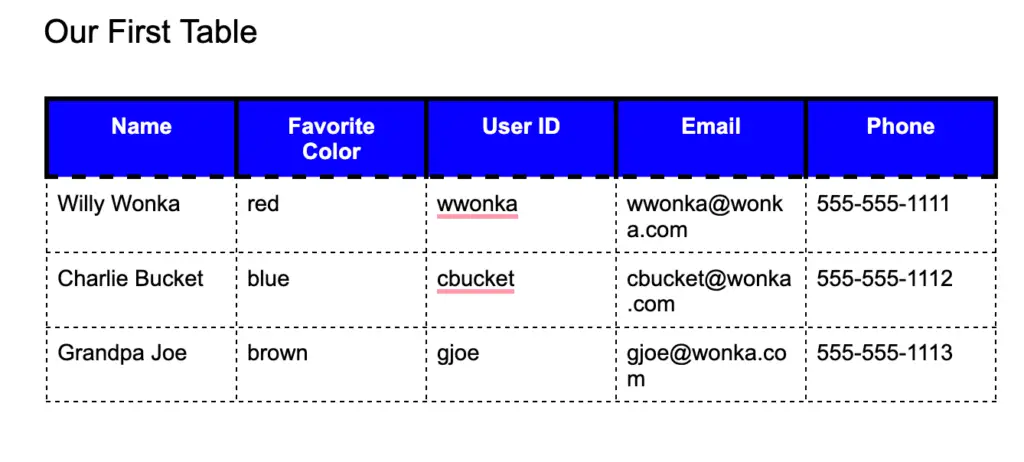
A four column table in Google Docs
A new column will appear. Fill in the cells for the new column.
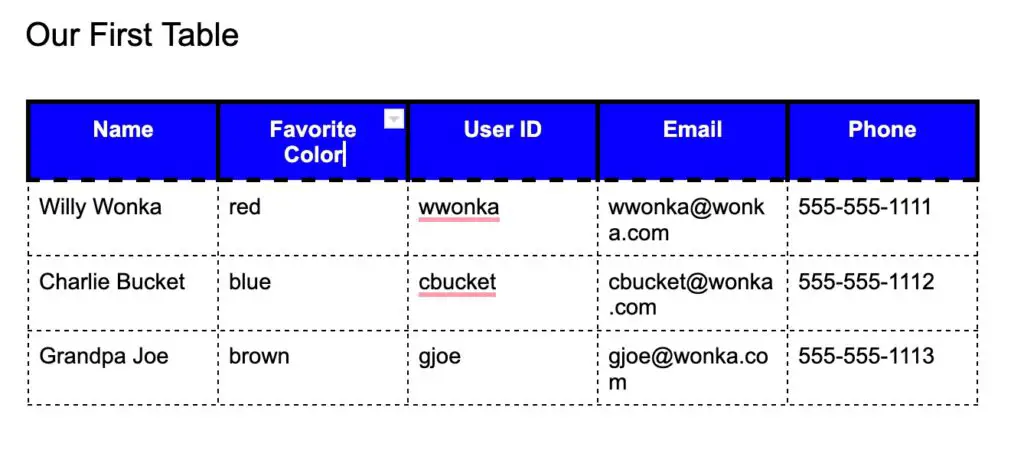
click in a cell of the column you want to delete
First, click on any cell in the column you want to delete.
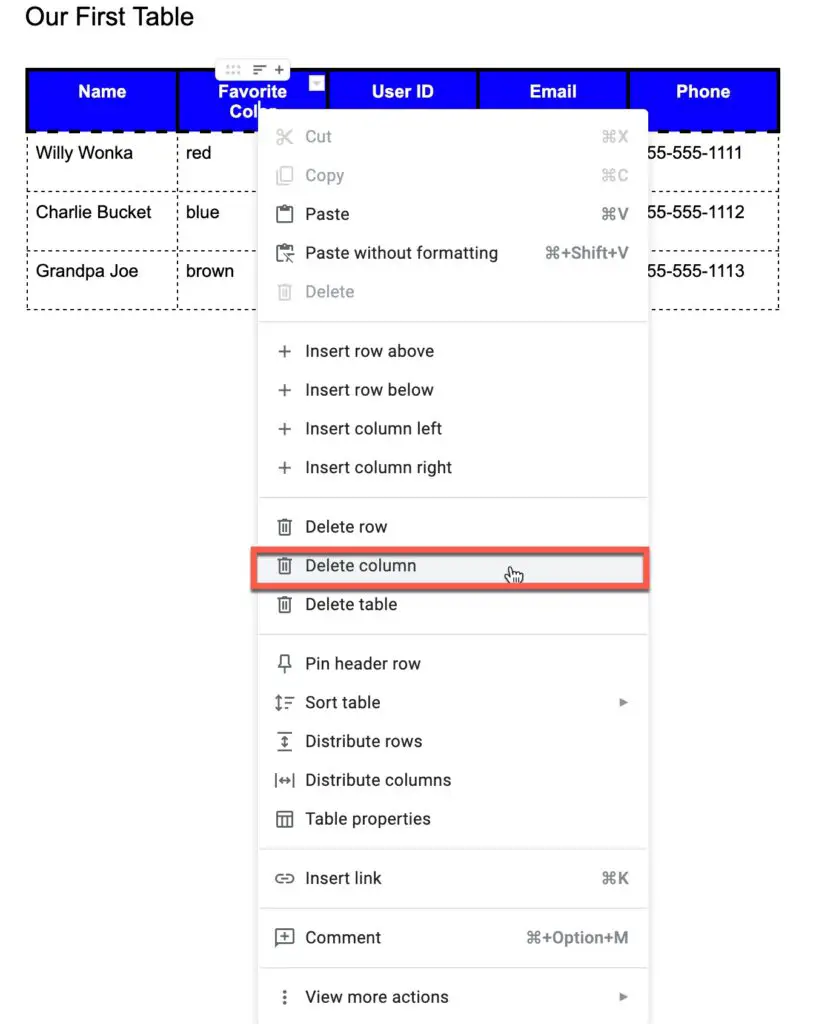
Select Delete Column to delete the column
Next, right-click and select Delete Column from the available options as shown in the screenshot above.

Four column table in google docs
Your table should now show that the column has been deleted.
In this instance, we want to split some rows away from the table.
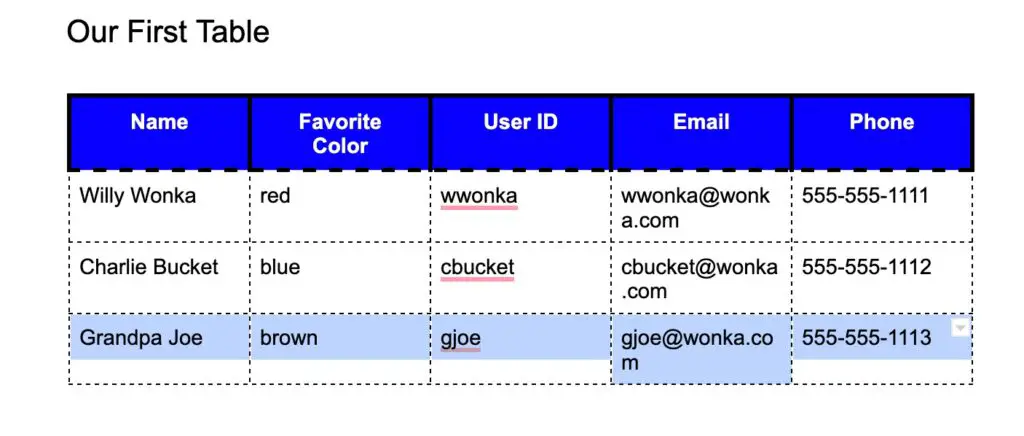
Select the row(s) you want to split as from the table
Select the cells in the row(s) you want to split out from the table as shown in the screenshot above.
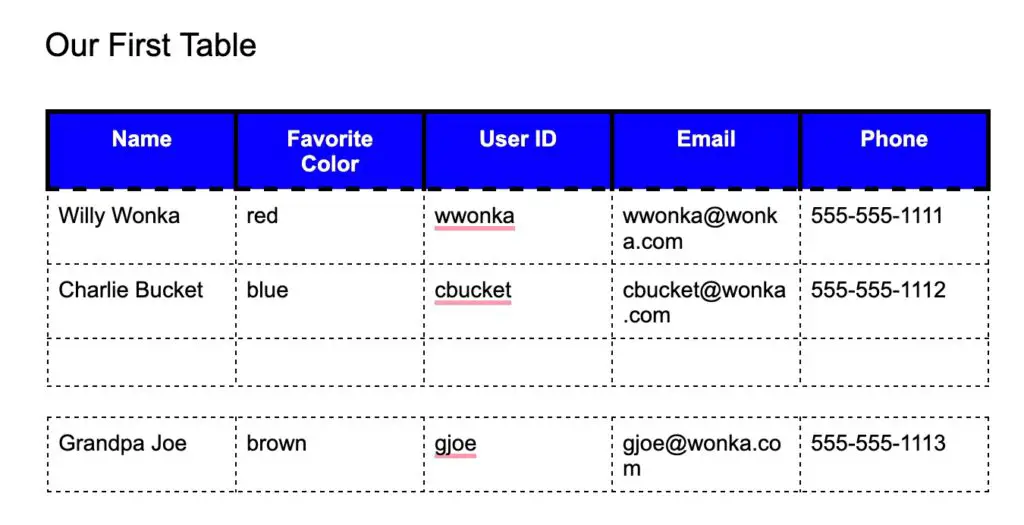
Click and Drag the row below your table
Next, click and drag the row below the table. Release the mouse button. The row(s) should now be separate from the table as shown in the screenshot above.
Sometimes, you want to delete certain parts of a table.
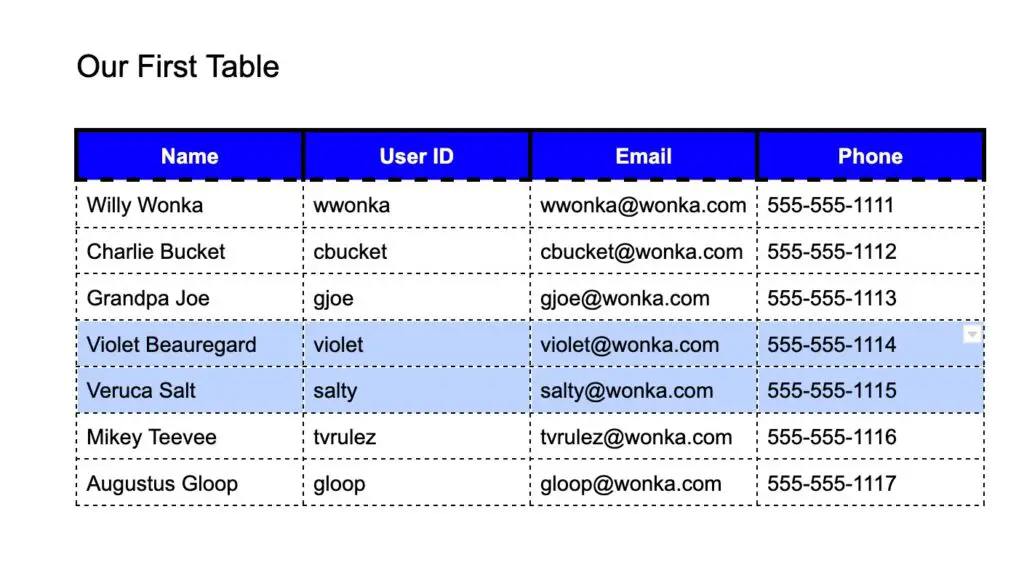
Select cells
Select the row(s) you want to delete by clicking and dragging your cursor across the rows you want to delete.
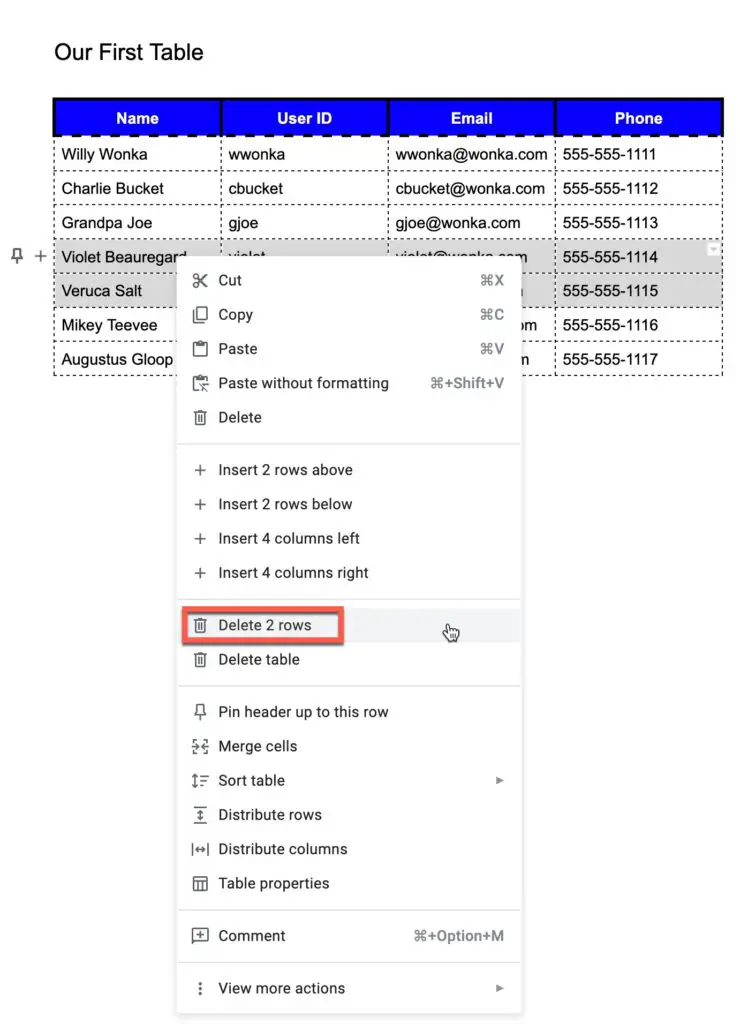
choose delete x rows to delete rows in your table in Google Docs
Next, right-click and select Delete x rows where x refers to the number of rows you selected. In our example above, we select two (2) rows so the prompt states Delete 2 rows.
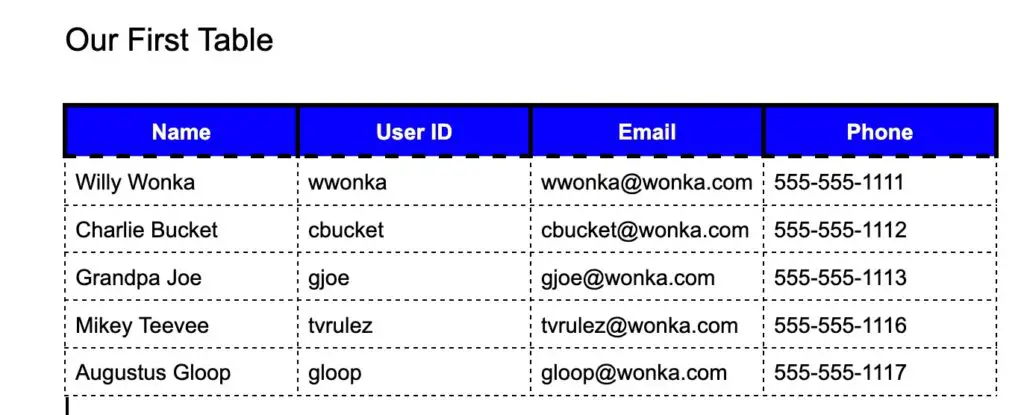
Table after deleting rows
Your table should no longer contain the rows you deleted.
One of the cool things you can do with tables in Google Docs is to merge cells.
Enclosed below are the steps for merging cells in Google Docs:
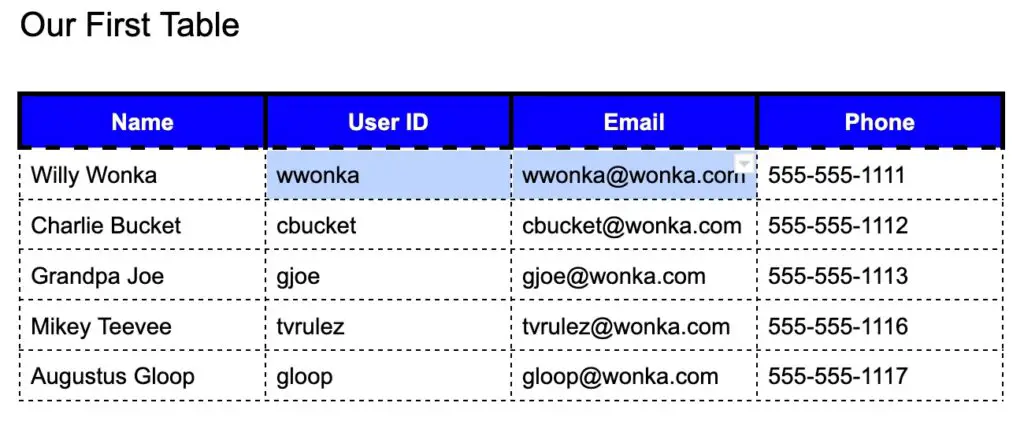
Highlight the cells you want to merge.
Select the cells you want to merge by clicking and dragging across the cells you want to merge.
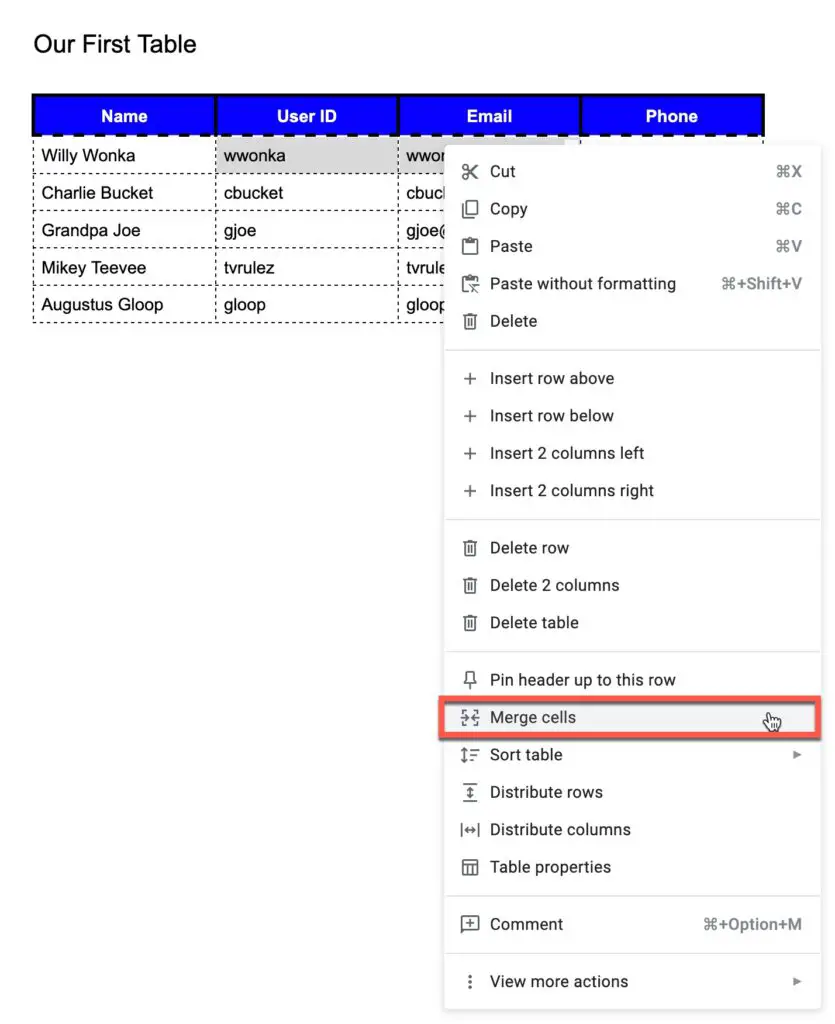
Right click and select “Merge Cells”
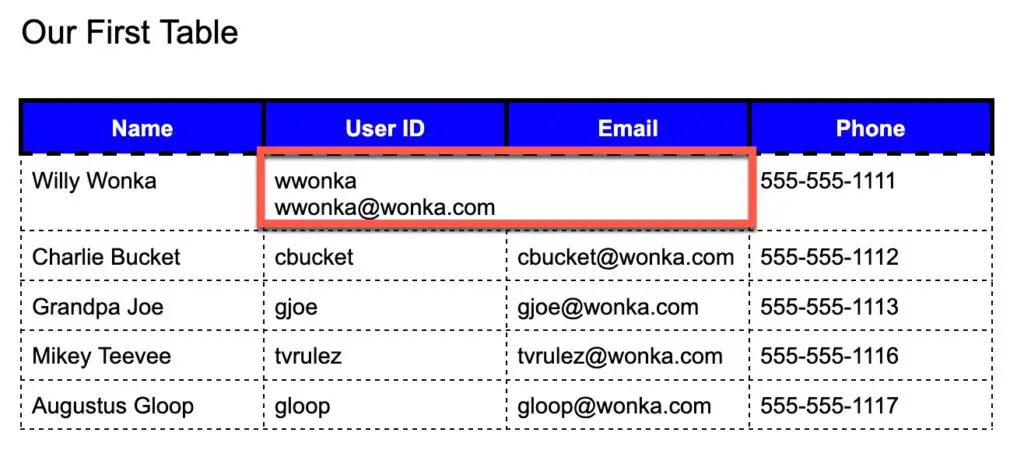
Next, right-click and select “Merge cells” from the available options as shown in the screenshot above. Two cells merged in Google Docs
Your cells should now be merged like the ones shown above.
Tip: You may adjust inner columns using the same method by hovering over the borders of cells. Similarly, all row borders can be moved in this way to adjust row width.
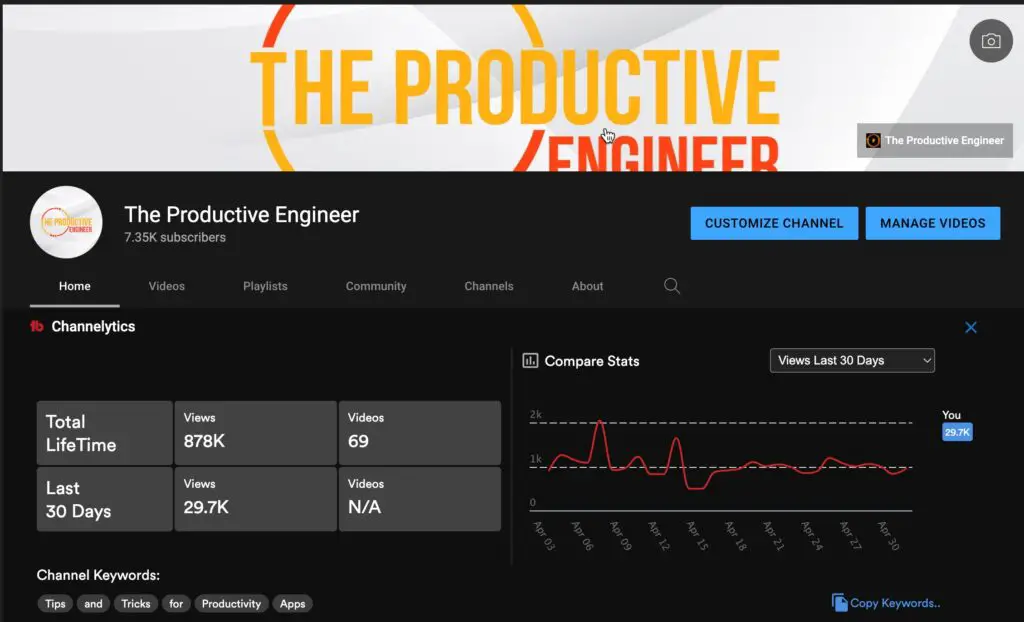
The Productive Engineer YouTube Channel
We have a YouTube channel now and we are working hard to fill it with tips, tricks, how-tos, and tutorials. Click the link below to check it out!
Do you use the same password for multiple sites? Do you have trouble remembering all your passwords? You should try 1Password! 1Password is secure and allows you to log in to sites and fill out forms securely with a single click. I use 1Password for all my passwords and it really makes managing all my passwords simple.
For more information on 1Password and to get a 14-day free trial, go to 1Password at the link below:
Jimmy McTiernan is the owner/author of The Productive Engineer, a website dedicated to helping people master productivity applications. Jimmy also is the creator of The Productive Engineer YouTube channel.